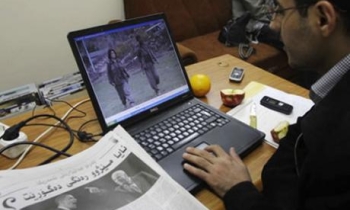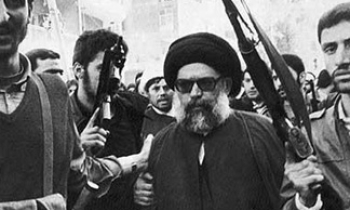Conditions for Nigerian journalists are as trying as ever despite the military regime's fall in 1999, Reporters sans Frontières (RSF) has said. In the past 30 days RSF has registered three physical attacks on journalists, one arbitrary arrest, one case of intimidation, one unfair dismissal and one censorship order.

"Journalists are exposed to Nigeria's constant violence like other civilians, but they are also the punch-bags of those in authority – military, state governors, ministers and businessmen – who enjoy complete impunity and have no respect for the right to information," a RSF statement said.
"This is why special tribute should be paid to Nigeria's journalists, who endured the oppression of the military juntas in the past and who now have to put up with contempt and brutality from the civilian authorities and those who enjoy their protection," it said.
During the week of March 13-17, not one day went by without a journalist being subject to abuse of authority or violence by the security services, the police or judicial officials.
The latest case registered by RSF was that of Hassan Karofi, correspondent of the privately-owned Daily Trust newspaper in the northern state Jigawa, who blacked out from the effects of the tear gas used by a unit of the Nigerian Police Force (NPF) to disperse supporters of the Advanced Congress of Democrats (ACD) on March 17 in Dutse on the grounds that they had no permit to hold a meeting. ACD is a new opposition party formed with the aim of participating in next year's general elections.
The day before, on March 16, the high court of the southwestern state of Ekiti forbid The News, a weekly magazine based in Lagos, to publish any "negative" reports about governor Ayodele Fayose until further notice, in response to a lawsuit brought by Fayose over a February 6 report alleging embezzlement and waste in the government.
Fayose had demanded the exorbitant sum of 25 billion nairas (160 million euros) in damages and a ban on any further reporting on his activities by The News. A protégé of President Olusegun Obasanjo, he is well known for attacking the press and The News had already withdrawn its permanent correspondent from the state capital, Ado-Ekiti, because of the difficulty of working there.
Mahmud Jega, editor of New Nigeria, a government-owned weekly in the northern city of Kaduna, was fired by the information ministry on March 15 over a report he wrote five days earlier headlined "Horror : Mantu Committee Adopts Third Term." It was about the decision by a parliamentary panel led by senate deputy speaker Alhaji Ibrahim Mantu to approve a constitutional amendment that would let Obasanjo run for a third term next year.
A unit of the State Security Services (SSS) raided a privately-owned radio station, Rhythm 93.7 FM, on March 14 in Port Harcourt, the capital of the southern state of Rivers, arresting the news editor in charge that day, Segun Owolabi, for airing a statement the day before by the Claims Directory of Nigeria (CDN), a consumer association, calling for a protest against the regular power outages.
At the behest of the state-owned Power Holding Company of Nigeria, SSS held Owolabi for nearly 24 hours for trying to "disturb the peace." He was finally freed following the intervention of Rivers State commissioner of information Magnus Abe, who was convinced that his continuing arrest was also likely to disturb the peace. SSS has raided Rhythm 93.7 FM on several previous occasions in recent months.
Dare Aleshinloye, a photographer with the privately-owned daily the Tribune, was beaten by police and his equipment was stolen as he was returning to his home in Molete, in the central city of Ibadan, on the evening of March 14.
Sesan Olufowobi, a journalist with the Saturday Punch, the weekly supplement of the daily the Punch, was summoned and threatened on March 8 in Lagos by members of a commission created by the president to investigate a recent series of deadly clashes between the police and army. Olufowobi had quoted the armed forces chief of staff, Lt Gen Martin Luther Agwai, as saying the commission was pointless and that the two sides could sort out the problem in their own way. Agwai denied ever saying this and demanded that Olufowobi either hand over his recording of the interview or suffer the consequences.
Tunde Adesola, the Punch's correspondent in Osogbo, in the southwestern state of Osun, was arrested and roughed up by five policemen on February 21 when he objected to the way they parked their jeep outside Ladoke Akintola university teaching hospital. He was taken to Oja-Oba police station and forced to sign a statement acknowledging that he had "insulted a police officer."









